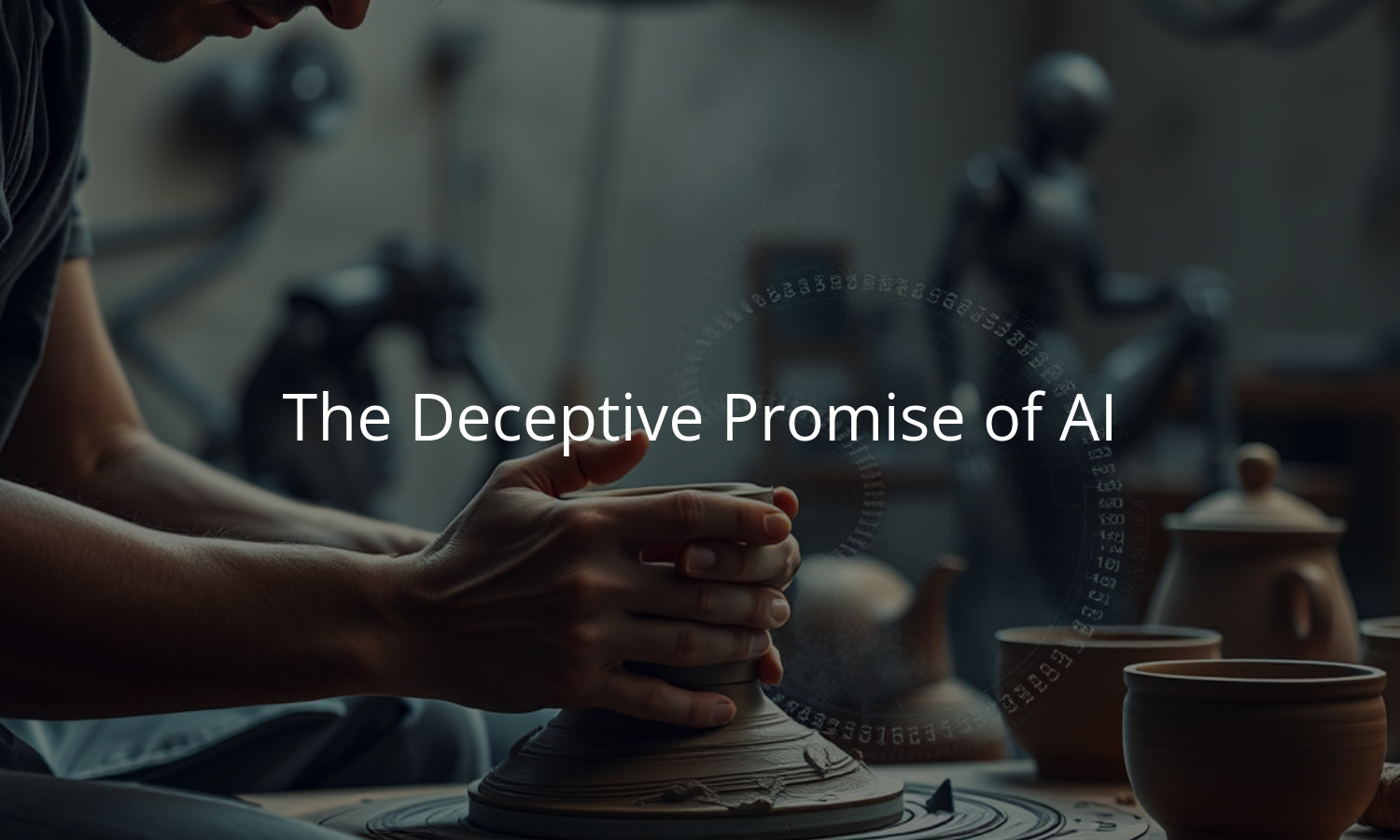We’ve all heard the pitch. AI will automate the boring stuff. File processing, data entry, routine tasks – things of the past leaving us free to pursue our true passions. We can spend our time on art, music, writing, and creative experimentation.
I love the sound of that.
Sadly, that promise is fundamentally broken. Not because the technology can’t deliver, but because we’ve built it into a system that guarantees disappointment.
The Employment Paradox
The first crack in this promise becomes obvious when you think about what happens after automation. Sure, AI might eliminate mundane tasks, but we still live in a society1This is true both in the US and in any country where the status quo is allergic to the concept of universal basic income… where you need a job to survive. When the robots take over data entry, those displaced workers don’t magically get to become full-time poets. They need to find something else that pays the bills.
The tension is easy to see. Everyone’s simultaneously excited about AI’s potential and terrified about job displacement. We want the efficiency gains, but we’re worried about the economic consequences. And rightfully so! In our current system, being freed from work doesn’t mean freedom to pursue fulfillment. It just means scrambling to find different work.
When Passion Becomes Paycheck
The second problem is even more insidious. Let’s say you do manage to pivot into something creative after AI handles your old job. Maybe you start making pottery, writing poetry, or composing music. Sounds great, right?
Except now that creative outlet isn’t just for fun anymore. You don’t get to create for yourself. The fulfilling hobby has become your livelihood. That pottery you used to make to relax after work? Now you need to optimize it for market appeal. Those experimental poems you wrote to explore ideas? Better make sure they’re monetizable and reach the widest possible audience.
The very thing that was supposed to be your escape from the grind becomes the grind itself. The freedom AI promised rendered a prison.
The Monetization Trap
I’ve watched this play out repeatedly. Friends who started side projects for pure enjoyment suddenly face pressure to scale, optimize, and commercialize when those projects become their primary income source. The joy gets sucked out pretty quickly when your creative expression is tied directly to your mortgage or the food in your fridge.
This isn’t to say that making money from creative work is inherently bad. But there’s a fundamental difference between choosing to monetize something you love and being forced to monetize it because the robots took your day job.
What We Actually Need
The real promise of AI shouldn’t be “now you can turn your hobbies into work.” It should be “now everyone can have genuine economic security while pursuing whatever fulfills them.” Achieving that requires rethinking more than just our technology. It requires rethinking our entire relationship between work, value, and human worth.
Until we address the underlying economic structures that force us to constantly seek employment, AI will remain a double-edged sword. It might automate the boring stuff, but it also might force us to make everything else boring in the process.
The Path Forward
Maybe the answer isn’t to fear AI or blindly embrace it, but to use its development as an opportunity to have honest conversations about what kind of society we want to build. Do we want one where creativity becomes commodified out of necessity? Or do we want one where people genuinely have the freedom to create?
The technology is advancing whether we like it or not. The question is a painful dichotomy: will we build the social and economic frameworks needed to actually deliver on AI’s promises or instead create new forms of the same old problems.
- 1This is true both in the US and in any country where the status quo is allergic to the concept of universal basic income…

